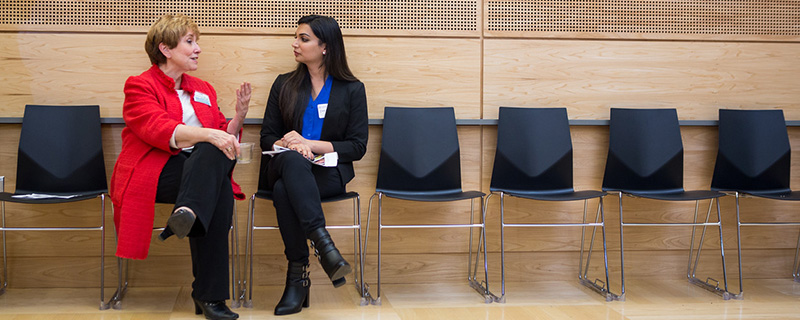Why Join the UW Foster MBA Mentor Program
We are a learning community at Foster and mentoring is an opportunity for both Foster MBAs and mentors to learn from each other. A student’s intellectual curiosity and ultimate career direction can be sparked by a mentor. It goes both ways. Mentors learn what is on the minds of future business leaders. They gain insight on generational trends and unpack and reflect on their own careers. They also learn from other mentors.
Watch the video above to learn more about the MBA Mentor Program.
Ways Mentors Participate
The full-time and evening MBA students at Foster have three different mentor programs to choose from.
MBA Mentor Program
Business and Community leaders serving as Mentors are paired with one to five mentees (students) and meet monthly. The number of mentees is at the mentor’s discretion. Some mentors focus on internal work including identifying values, strengths and career exploration while other mentors are externally focused, sharing insight on industries, roles and ways to navigate the job market and career. You can learn more about the Full Year MBA Mentor Program here. The program is mentee driven. Students select mentors whose background and experience align with their own interests and goals. The form and frequency of the interactions between students and their mentors vary. Some mentors work with mentees individually and other mentors meet in small groups.
Mentoring Circles for MBAs of Color
Here the aim is to provide a forum whereby Foster MBA students of color are connected to the greater community of professionals of color. Mentors participate with their circles monthly, meeting November through May. Click here to learn more about Mentoring Circles for MBAs of Color.
Spring MBA Mentor Program
The just-in-time Spring Quarter Mentorship program is typically comprised of MBA alum who graduated from MBA programs 5-7 years ago. In response to the greater number of students pivoting to tech careers, the program helps students to navigate the tech ecosystem and translate ways they can be effective when recruiting and onboarding in these firms. There is a tactical focus on mock interviews and preparation.
Some mentors (even those without tech backgrounds) are attracted to this program because they travel or have commitments that prevent meetings over the course of a full academic calendar year. You can learn more about the Spring Quarter Mentor Program here.
What are the responsibilities of being a mentor?
All Mentors receive a Foster MBA Mentor Workbook that provides a roadmap for the meetings and what to expect when working with students. Mentors should expect five (5) touchpoints (meetings) with their mentees throughout the academic year. At least two of the meetings are in person. There may be questions or an update via an email between meetings.
MBA Mentor program timeline
| July-September | Confirm returning mentors and invite new mentors |
| October | Mentor Dinner and Mentor-Student Reception; Students bid on mentors |
| November | Students notified of mentor matches |
| January-April | Mentor groups meet |
| March | Spring Mentor Program Kick-Off |
| May | Mentor Thank You Gathering with Awards and Celebration |
Mentoring Guidelines and Roles
Mentees
- Proactively share what they want to learn
- Ask for real-world career advice to help with their next steps
- Help each other outside of mentor meetings
Mentors
- Shares background, career trajectory and experiences in the work world in the first meeting
- Guides in-meeting discussions to help with student with career discovery and planning
- Ensures that the cohort and discussions are a safe environment
- If a specific topic is to be discussed in the next meeting, suggests a resource (TED talk, podcast or articles that may be relevant)

- Are open ended (not yes/no, not presuming an answer)
- Invite stories “Tell me about a time when” or “How so?
- Invite emotion “That must have been rough”
- Follow up on things the person says, “Tell me more about that.”

- Not understanding the mentee(s) goals. Review mentee resumes and their self-reflection on why they want a mentor and goals (forwarded from the MBA Mentor Program in Career Management). Typically, this will include a desire for insights on careers, leadership, and the industry sector.
- Be clear about what you offer so that you and the students get what you want out of the experience, recognizing students will have read your profile in advance before selecting you as a mentor.
- Interrogation: too many questions, no reciprocations
- Closed/inattentive body language or not listening and acknowledging what was said
- Assuming/leading the witness
Ideas for Mentoring
Returning mentors share their best practices with incoming mentors at an annual kickoff meeting. Here are some ideas they found were a hit with students.
- Prepare a case or bring in real clients. Anything you can do to give students a window on a real-life business situation will increase the impact of the visit.
- Invite other executives. Bringing in a partner, colleague, boss or client can give students more exposure and enrich the experience.
- Share your personal stories. Students are deeply interested in you and your career, not just your company. Let them know about your struggles and successes.
- Tell them how their MBA education can help them. How are MBA graduates employed in your company and industry? What career paths are available? Share what you know, or bring in MBA grads to talk about their work.
- Give them a tour. A quick tour of your workplace is one way of giving students an inside view of your company. Keep it short, though. These students came to meet you.
- Leave time for Q&A. Students usually have a lot of questions, so allow some time at the end of the visit for a Q&A session.
- Be flexible. Offer to meet for coffee or talk on the phone if students need advice.
Through mentor conversations, critical soft skills can be further fostered in areas that were underdeveloped during the pandemic. Examples include helping our students better understand how to:
- Communicate at all levels (up, across, and down)
- Build relationships
- Take risks and take charge while also being a listener
- Learn from feedback and understanding how to be coachable
You can help students develop in these areas, both through your own stories as well as by coaching them to practice developing these critical soft skills that employers are looking for. In-person mentoring, to the degree possible, helps convey these skills.
The mentors are senior level executives, representing diverse functions, companies and industries in the Seattle community. Each selects an area of the program in which he or she wants to participate. Some of the mentors have been with the program since its beginning in the academic year 1999-2000, and others are new each year.
What is the time commitment?
As a first year mentor you commit to hosting one on-site company visit (generally 2-3 hours). As a second year mentor, the time commitment can vary widely. Generally you will meet with your mentees three to four times throughout the year.
What if personality or career interests do not match?
In rare cases where students and mentors are not compatible, meetings may be terminated after a couple of sessions.
Is it possible to be a first and second year mentor?
Yes! If you are willing to make this time commitment to our students, we welcome you hosting a visit for first years and meeting with second years.
When will I hear from my mentee group?
Students are given their mentor assignments in November. You should hear from your group leader before the end of the quarter in early December.
Who do I talk to if I have other questions?
Please contact Colette Vogel at 206-685-4720 or [email protected] or MBA Career Management at 206-685-2410 or Program Coordinator Zora Kings at [email protected].
Who do I talk to if I have other questions?
Please contact Colette Vogel, Director Mentor Program at [email protected] or 206-685-4720.

